The Impact of Alcohol on Family Violence: A Social Psychology View
VerifiedAdded on 2023/05/30
|5
|901
|240
Essay
AI Summary
This essay explores the relationship between alcohol consumption and family violence through the lens of social psychology. It highlights the detrimental effects of alcohol on individuals and families, particularly concerning domestic abuse. The essay references statistics indicating the prevalence of domestic violence and the role of alcohol in these incidents. It discusses Bandura's social learning theory as a potential explanation for the link between alcohol and violence, suggesting that children who witness parental addiction and violence are more likely to develop similar behaviors. However, the essay also acknowledges that domestic violence stems from multiple factors, including jealousy, low self-worth, psychological disorders, and societal norms. It concludes that while alcohol abuse increases the likelihood of family violence by impairing cognitive function and altering brain chemistry, education and sensitization are crucial in preventing future generations from perpetuating this cycle.
1 out of 5
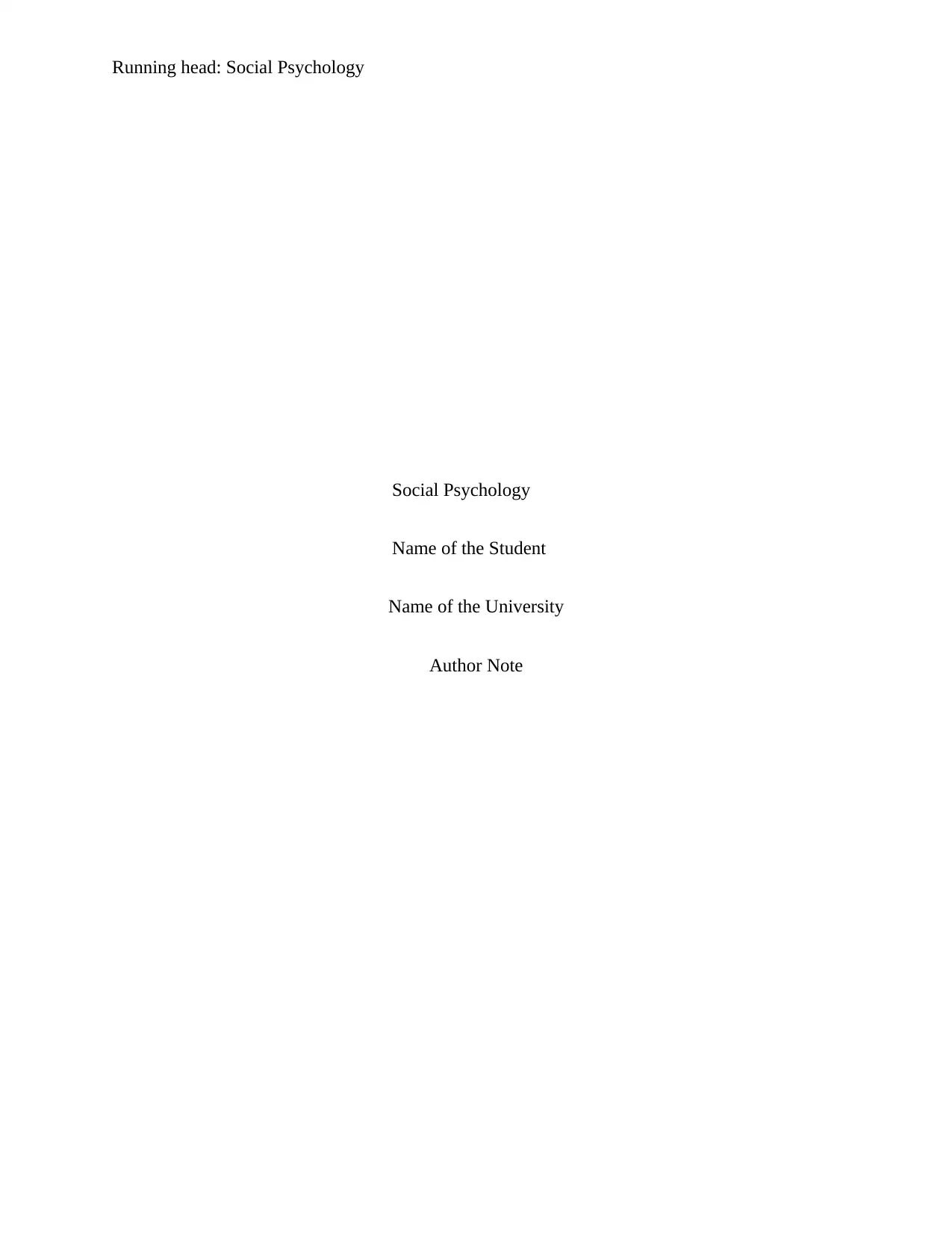
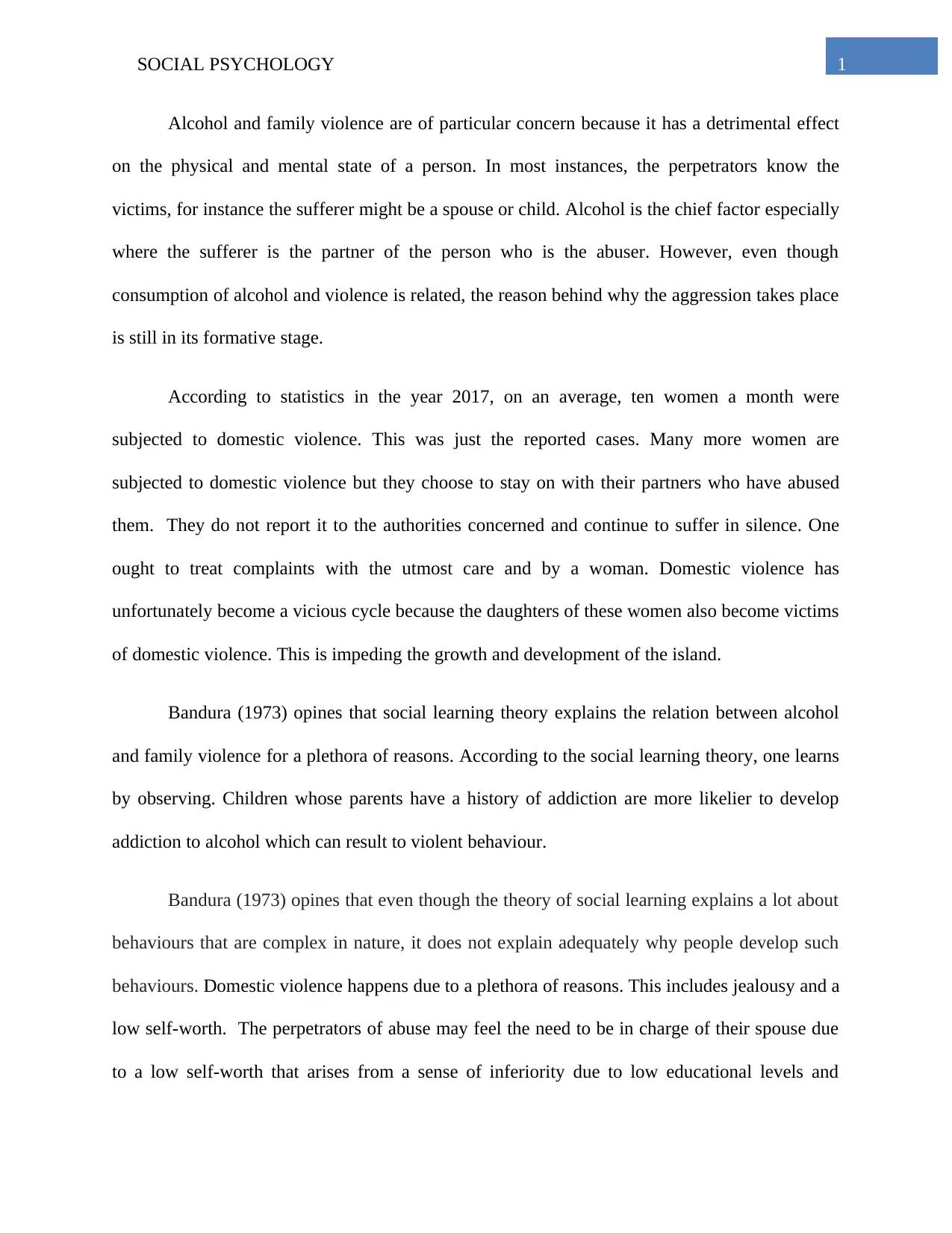
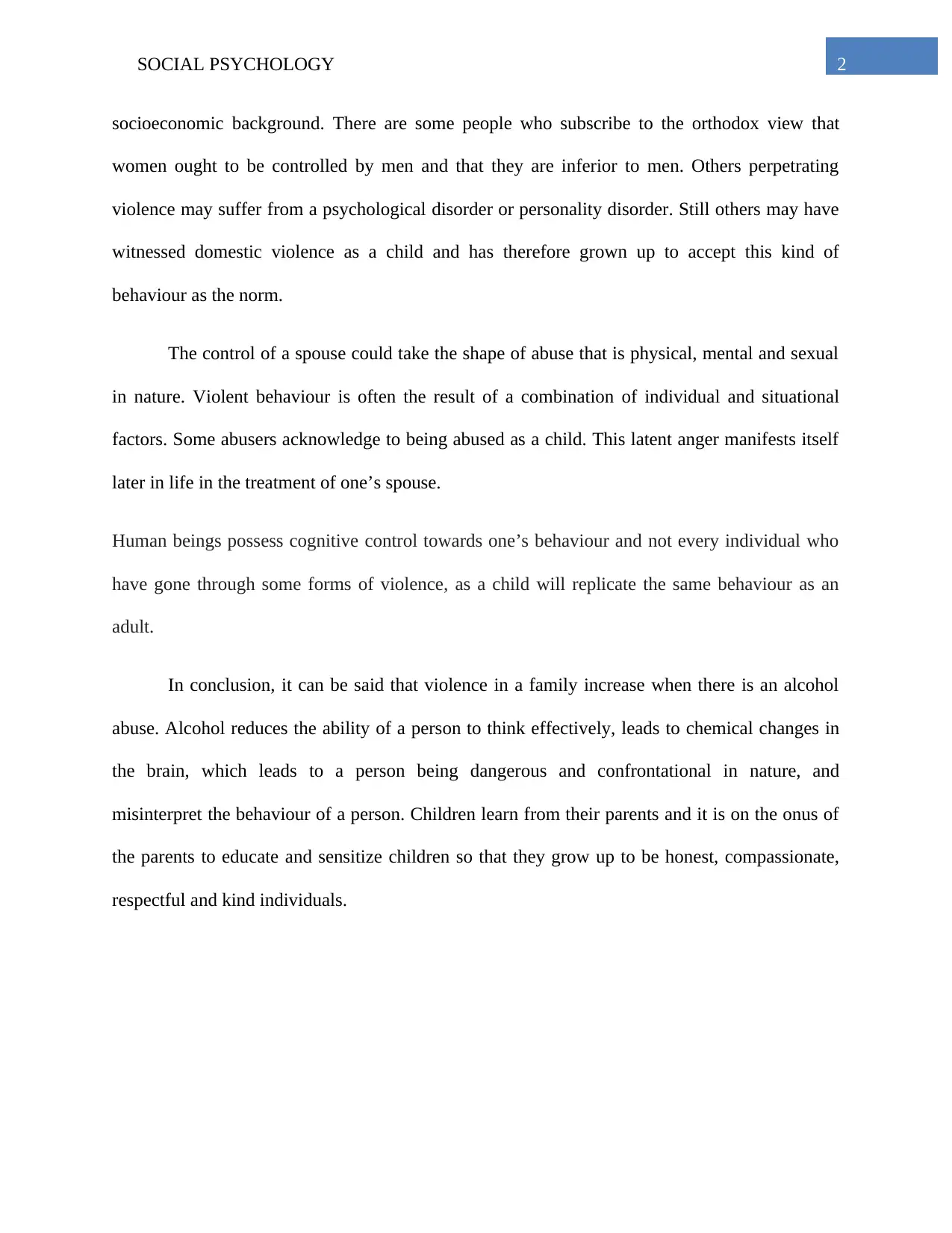

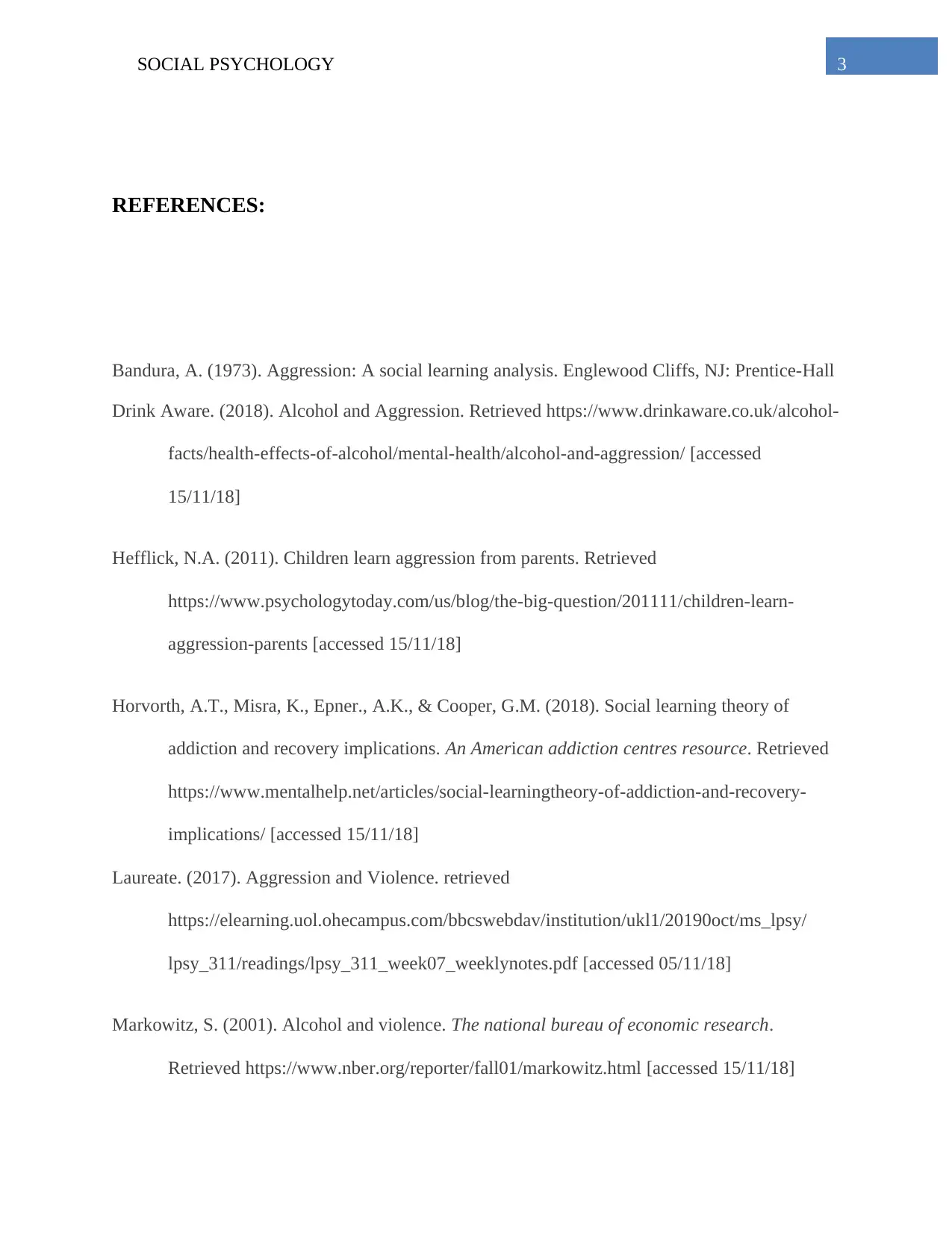
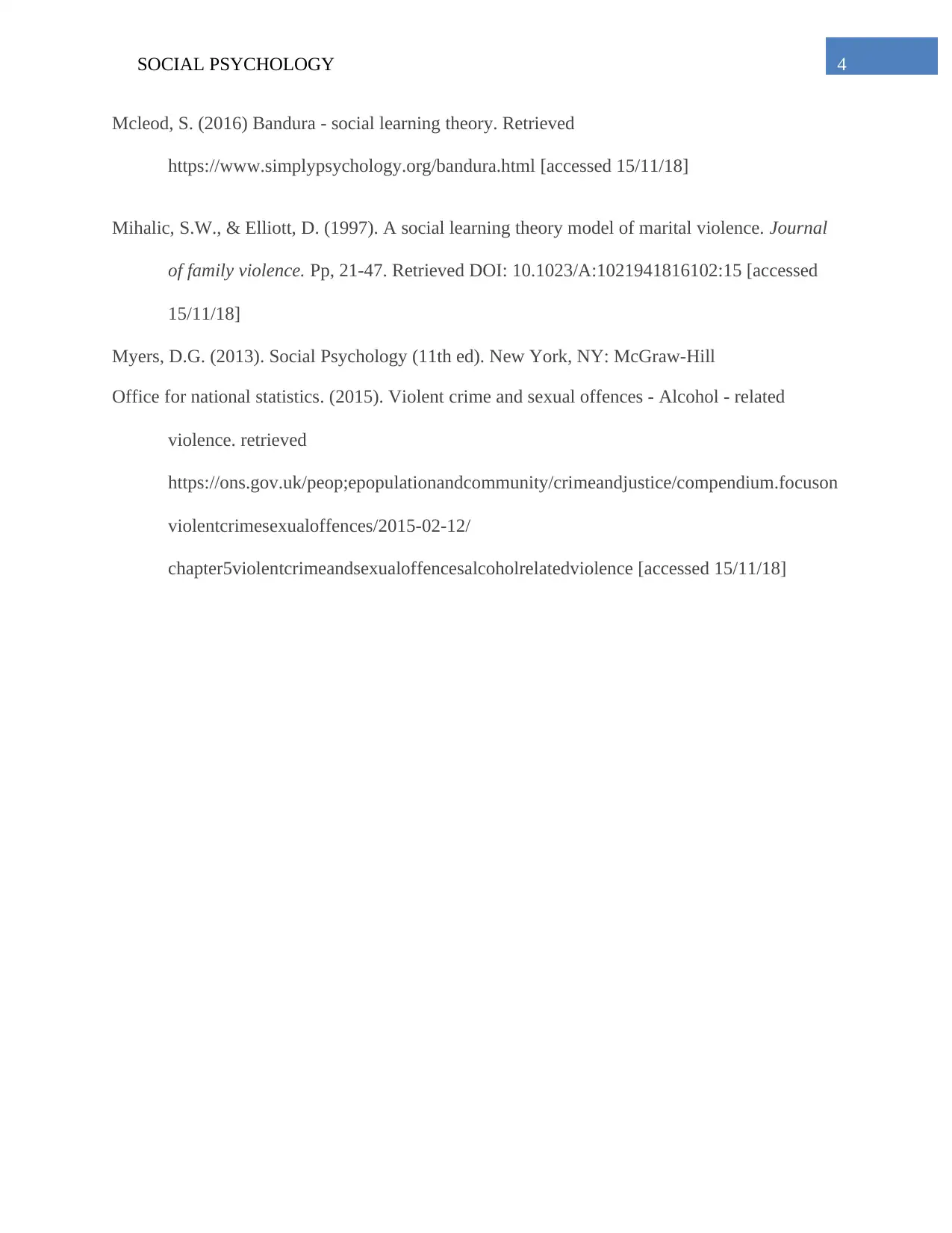






![[object Object]](/_next/static/media/star-bottom.7253800d.svg)